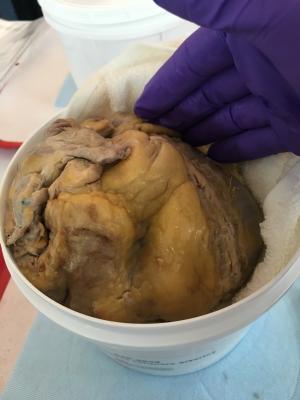
September 9, 2019 — AstraZeneca announced detailed results from the landmark Phase III DAPA-HF trial that showed Farxiga (dapagliflozin) on top of standard of care reduced both the incidence of cardiovascular (CV) death and the worsening of heart failure.
DAPA-HF is the first outcomes trial with an SGLT2 inhibitor investigating the treatment of heart failure in patients with reduced ejection fraction (HFrEF), with and without type 2 diabetes (T2D). Farxiga is currently approved to improve glycemic control in patients with T2D.
Top-line results announced in August 2019 showed DAPA-HF met the primary endpoint. The new detailed results of the trial presented at the European Society of Cardiology (ESC) Congress 2019, Aug. 31-Sept. 4 in Paris, France, showed Farxiga reduced the composite of CV death or worsening of heart failure by 26 percent (p<0.0001) and showed a reduction in each of the individual components of the composite endpoint. Farxiga is not indicated to reduce the risk of heart failure or CV death.
John McMurray, M.D., University of Glasgow, Cardiovascular Research Centre, Institute of Cardiovascular and Medical Sciences, said, “We are very pleased that Farxiga was so effective in our trial – it did all the things we would like any drug to do in heart failure, which are to improve symptoms, reduce hospital admissions and increase survival. Even better, Farxiga was as effective in heart failure patients without diabetes as in those with diabetes.”
In analyzing each of the components of the primary composite endpoint, there was a 30 percent decrease (p<0.0001) in the risk of experiencing a first episode of worsening heart failure and an 18 percent decrease (p=0.0294) in the risk of dying from CV causes. The effect of Farxiga on the primary composite endpoint was generally consistent across the key subgroups examined.
The trial results also showed a significant improvement in patient-reported outcomes measured by the Kansas City Cardiomyopathy Questionnaire (KCCQ) total symptom score and a nominally significant reduction in all-cause mortality by 17 percent (7.9 vs 9.5 patients with an event per 100 patient-years) in favor of Farxiga.
The safety profile of Farxiga in the DAPA-HF trial was consistent with the well-established safety profile of the medicine. The proportion of patients with volume depletion (7.5 percent vs 6.8 percent) and renal adverse events (6.5 percent vs 7.2 percent), which are commonly of concern when treating heart failure, were comparable to placebo. Major hypoglycemic events (0.2 percent vs 0.2 percent) were rare in both treatment groups.
Farxiga is also being studied in patients with heart failure with preserved ejection fraction (HFpEF) in the DELIVER and DETERMINE (HFrEF and HFpEF) trials.
FDA Clears Dapagliflozin to Reduce Heart Failure Hospitalizations — October 2019 update
Read more highlights from the 2019 ESC Congress
For more information: www.esc365.escardio.org


 January 05, 2026
January 05, 2026 









